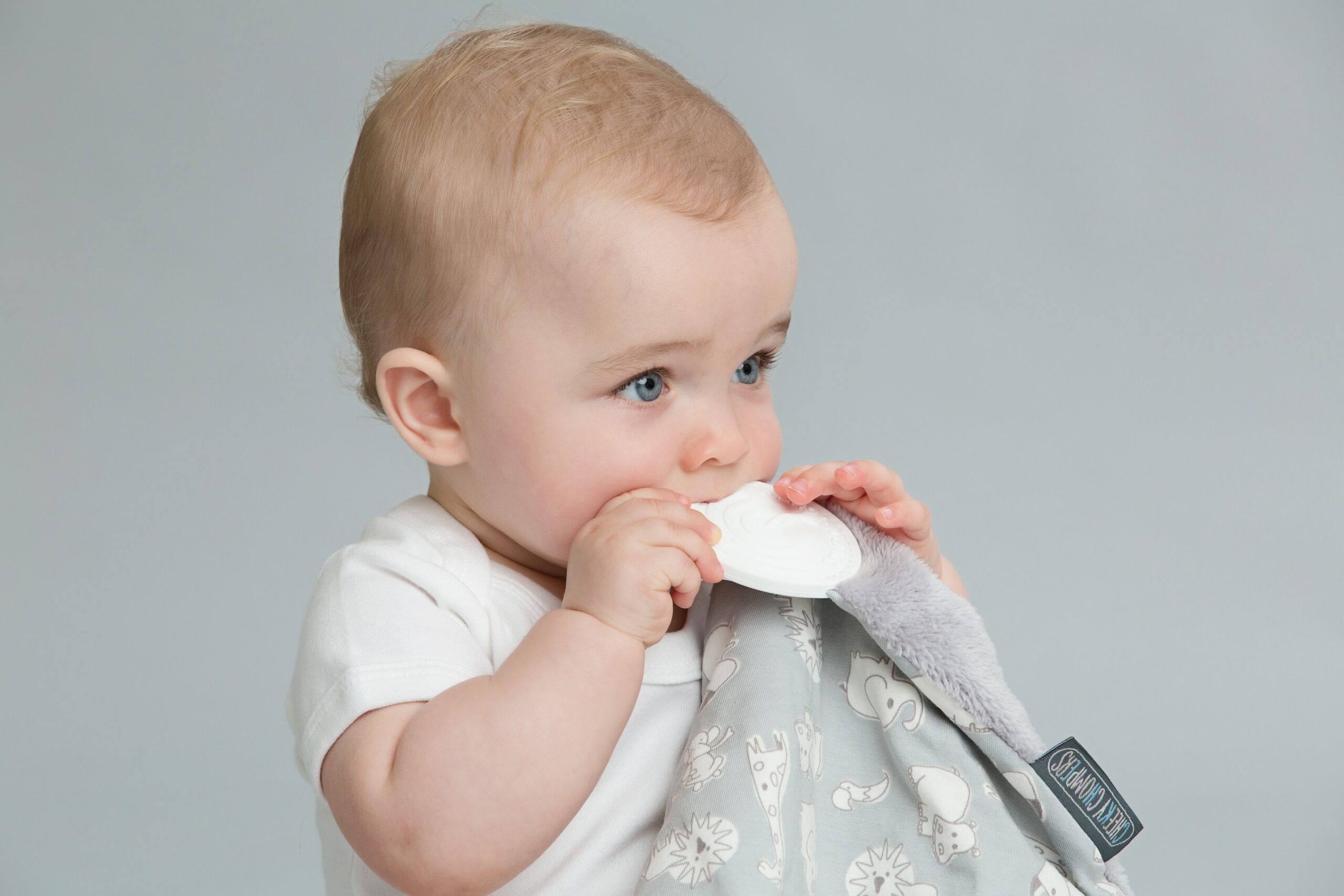As new teeth start to surface, the gums can hurt, whether you’re a teething baby or an 18-year-old whose wisdom teeth are pushing through. Just the temporary injury to gum tissue is enough to cause swelling and pain. As a parent, it can be daunting to deal with a restless or teething baby. It disrupts your normal routine and creates an uncomfortable environment for both you and your little one.
It can be tough to handle an irritable or crying baby, especially if you are physically tired and mentally exhausted. It's important to remember that your baby is unable to self-soothe and relies on you to handle the situation appropriately.
What is Teething?
Teething is a natural process in which an infant's first teeth, also known as deciduous or milk teeth, emerge by pushing through the gums. This usually occurs between the ages of 6 and 12 months and typically occurs in pairs. It's common for young children and infants to experience restlessness, difficulty falling asleep, and frequent night awakenings. This typically affects around 20-30% of children and can significantly impact the quality of life for both the child and their caregiver.
When Do Babies Start Teething?
Babies typically start teething around the age of 6 months, although it can vary. Some infants might begin teething as early as 3 months, while others may not start until closer to their first birthday. The order and timing of teething can also differ among babies. The lower central incisors (bottom front teeth) are often the first to come in, followed by the upper central incisors.
Teething is a gradual process, and by the age of 3, most children have their full set of primary teeth. Keep in mind that these are general guidelines, and individual variations are common. If you have specific concerns or if your baby's teething seems unusually early or delayed, consulting with a paediatrician can provide personalised guidance.
What are the Risk Factors Associated With Teething?
Teething, a normal phenomenon in babies, can sometimes come with additional symptoms such as fever, irritability, diarrhoea, and poor sleep. Restlessness in babies can be caused by overstimulation of the baby's senses, teething, tiredness, colic, and underlying infections, among others.
What are the Signs and Symptoms of Teething?
Restlessness is one of the most common signs of teething in babies. Restlessness in babies is usually characterised by an unwillingness or inability to rest or relax, remain still, be quiet and calm, fall asleep, and remain asleep
Baby teeth may emerge without causing any pain or discomfort. However, sometimes you may notice certain symptoms in your little one, such as gum inflammation, drooling, loss of appetite, diarrhoea, and an increase in body temperature. Other common symptoms include increased biting, gum rubbing, sucking, wakefulness, ear rubbing, disturbed sleep, and general irritability.
Diagnosis
Teething usually doesn't require a visit to a healthcare professional and is a normal developmental process. However, if your baby has a high fever that persists without any apparent reason or persistent diarrhoea during teething, it's best to seek medical advice as soon as possible. They will examine your child to determine whether these issues are related to teething or another condition. If necessary, they will prescribe appropriate medication.
How Does Teething and Restlessness Impact the Quality of Life?
Having a restless and/or teething baby can impact the quality of life for both infants and their caregivers. It creates an emotionally unstable environment for both the parent and the child. Since babies can't self-soothe, they depend solely on their caregiver/parent for support.
This additional responsibility can seem overwhelming, especially for those who are already emotionally and physically exhausted. It's important to avoid letting one's emotions take over and negatively impact the situation.
What are the Treatment Options?
Managing teething discomfort involves various approaches
Natural Remedies
During your little one’s restlessness and/or teething, cuddling and spending extra time with them can help alleviate their pain by providing feelings of comfort and reassurance. Other non-drug measures that can be tried include bathing, singing, playing quiet music and/or reading. Teething toys such as teething biscuits, and teething rings can be especially soothing. Teething gels and ice pressure can provide relief.
Over-the-counter and Prescribed Medication
Antipyretic/analgesic drugs are commonly used to treat children, with paracetamol and NSAIDs (non-steroidal anti-inflammatory drugs) such as ibuprofen being the most commonly employed agents. Aspirin is not recommended for children due to the risk of Reyes syndrome. However, the use of pain-relief drugs is controversial due to the possibility of unwanted side effects and the view that fever can stimulate the immune system. Prescribed antibiotics may be necessary if there is an underlying secondary bacterial infection.
Treatments to Avoid
It's important to only use items that are specifically approved to help soothe your baby's teething. Even some products marketed as teethers or teething aids may not be safe choices. For example, avoid using teethers filled with liquid that can tear and spill, or ones made of breakable materials like plastic that can lead to choking. Additionally, do not use teethers that are frozen solid, as they can be too hard on a baby's mouth.
It's important to also be aware of the materials used to make teethers, as some may contain harmful substances like lead. To be safe, look for teethers made of rubber.


 71–75 Shelton Street, Covent Garden, London, WC2H 9JQ
71–75 Shelton Street, Covent Garden, London, WC2H 9JQ +44 (0) 20 3376 1032
+44 (0) 20 3376 1032



